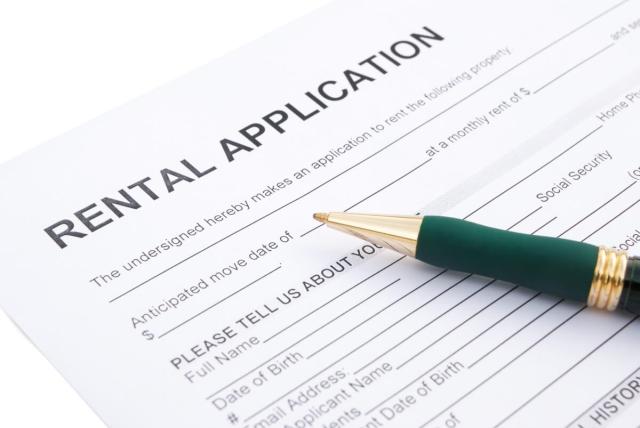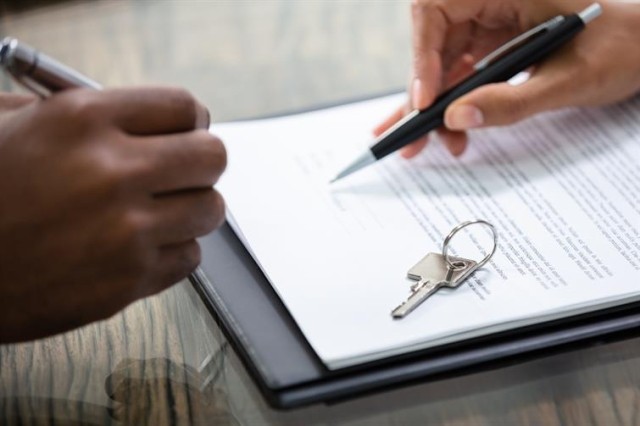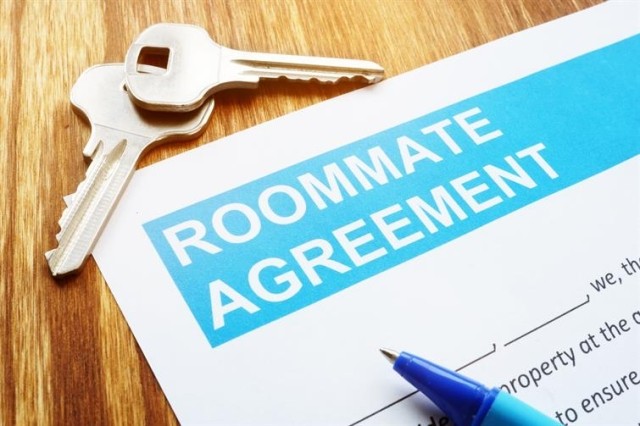You’ve finally found the perfect apartment that checks all your boxes. You can’t wait to move in and start life in your new home! That sense of satisfaction, excitement, and accomplishment fills you, and you can’t wait to take the next step, but what is that?
The next step is applying for your new apartment, whether online or in person. You may want to get through it quickly but be diligent. Landlords and property managers use rental applications to gather necessary information and screen applicants to determine who would be the best fit for the rental. In this article, we’ll answer the following questions:
- What is a rental application?
- How to fill out a rental application
- Rental application fees
- How long do rental applications take?
- What happens after I apply?
What Is a Rental Application?
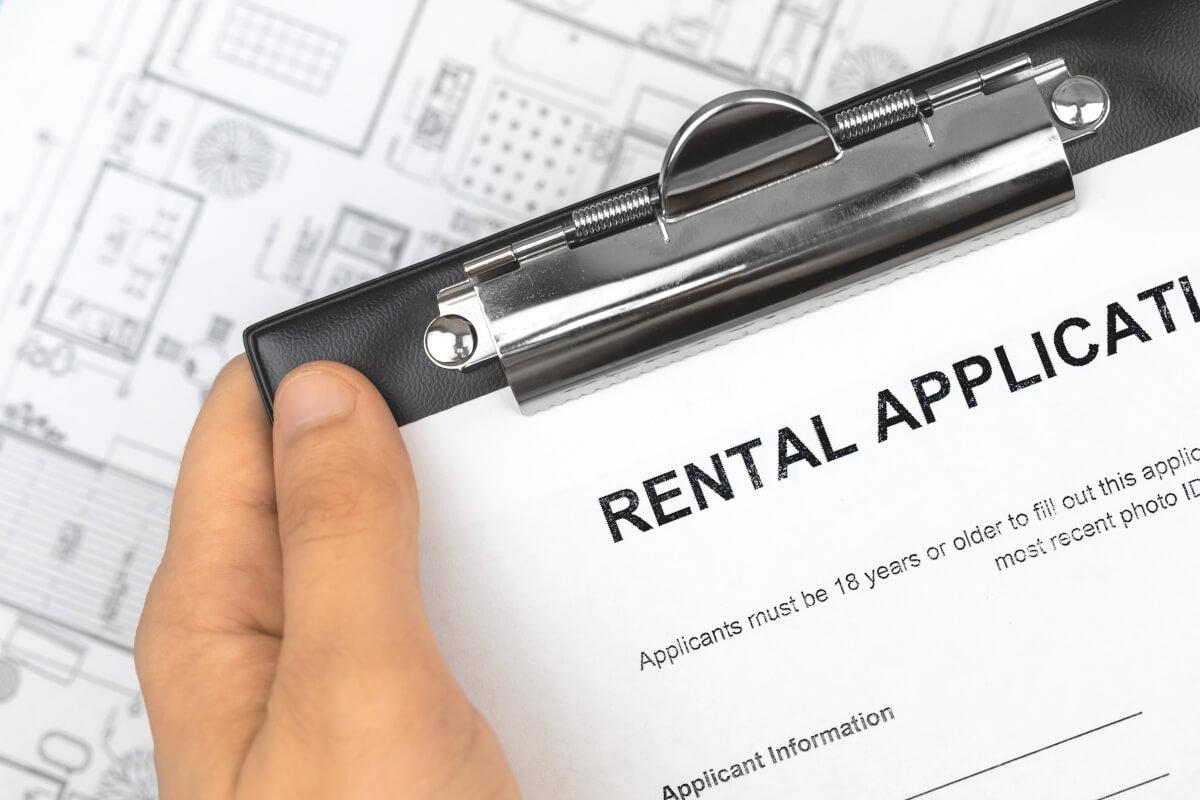
A rental application is a form you fill out that gathers detailed information about you for landlords or property managers to use. They use this info to decide whether they should approve or deny you. What information they collect can vary depending on the property, city, and state. There are some things they can’t ask about according to fair housing laws.
How to Fill Out a Rental Application
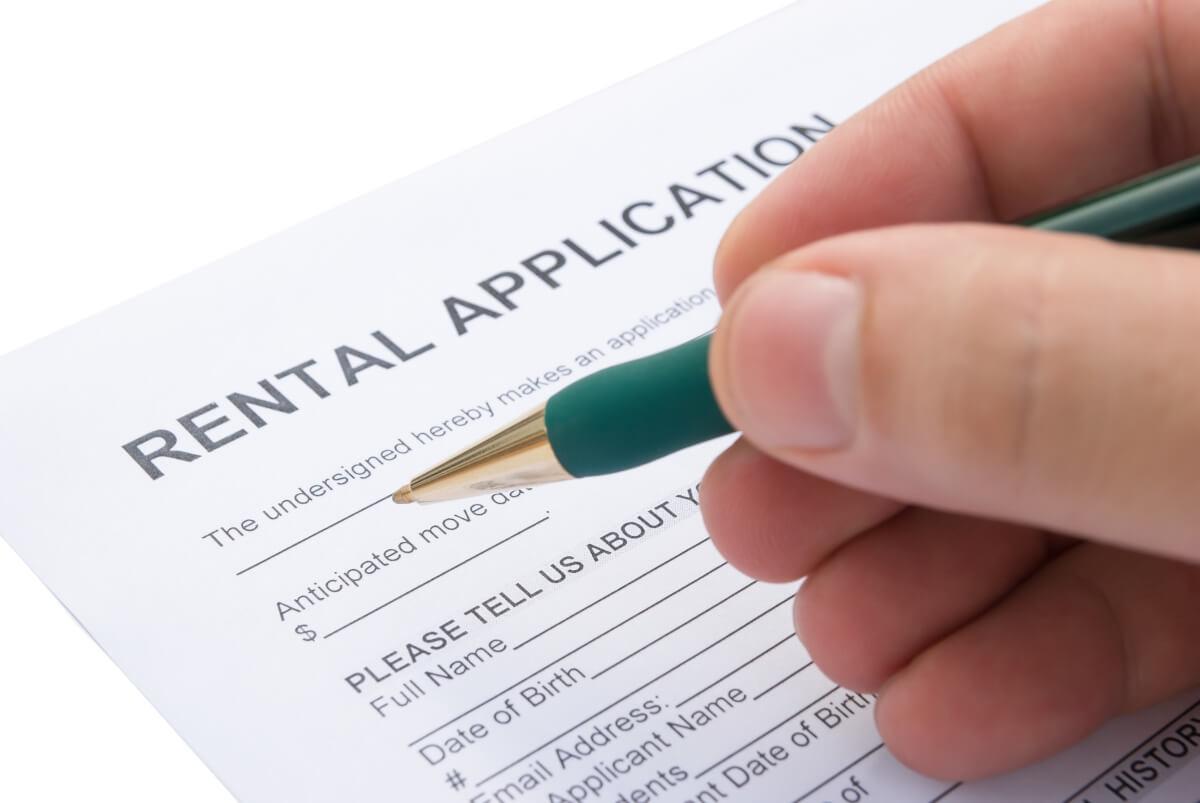
You can likely apply for the apartment online or in person; whichever route you choose, you will need most (if not all) of the following information for you and any other occupants over 18 years old. Gathering this information and any required documents beforehand helps the process go faster.
Contact information
You’ll need to share your basic contact information (name, address, phone number, and email address) while filling out your rental application so the landlord or property manager knows who you are and how to reach you. This is also pertinent for any credit or background checks that may be part of the application process.
Preferred move-in date
To make sure the apartment is available when you need it, a landlord will ask when you want to move in. This helps avoid any issues when the day comes to get your key and start moving in.
Co-applicants, minors, or pets
If you have anyone living with you, whether it be a roommate, minor, or a pet, the landlord will want to know about it. You can add people as co-applicants on the application as they will need to apply as well. Property managers also want to know what kind of pet you have to ensure it aligns with their pet policies and may request vaccination records.
Social security number
Rental applications will typically require you to share your Social Security number. This number is used to conduct in-depth credit and background checks. If you feel hesitant about sharing this sensitive information, ask the landlord or property manager about their privacy policy and how your information is kept secure.
Driver’s license number
Your driver’s license number is often used to verify your identity, ensuring that your license information matches up with your credit report and that you are who you say you are. This number alone is not sufficient to pull a credit report, which is usually why landlords and property managers ask for both your driver’s license and Social Security numbers.
Employment information/Proof of income
Landlords and property managers are primarily concerned with your ability to pay the rent. They can usually discern this by verifying your employment and requesting proof of income. You will likely be asked to present recent pay stubs and/or W-2 forms to achieve this end. If you’ve just been offered a new job in a new city and don’t have any pay stubs yet, you can also submit your job offer letter.
Bank statement/Bank account number
You can also share a recent bank statement if you don’t have any available copies of your recent pay stubs or W-2 forms. A landlord or property manager may ask for your bank account number to ensure you have a bank account and make enough to cover the rent.
They may also want your bank account number in case you miss rent payments. Know that as a third party, they can’t do anything with your bank account number unless given permission by a court ruling. Remember that this number is also listed at the bottom of any personal checks you may use to make payments.
Residential history
In addition to your ability to pay rent, landlords and property managers want to know if you’ve had any issues causing property damage or breaking the terms of your lease agreements in the past. So, they will usually conduct a tenant background check and ask you for the last three years of your rental history, including the addresses of your former rentals, your reasons for moving, and your previous landlords’ names and phone numbers.
Cosigner information
If you’ve made it this far and realized you’re missing any of the previous information or don’t meet the landlord’s criteria, you will likely need a cosigner to vouch for you. Whether you have no credit or bad credit, a cosigner can help you get approved for an apartment. A cosigner takes on a big responsibility by agreeing to pay your rent if you default on any payments, so be sure to ask someone you trust to cosign for you.
Vehicle information
Your vehicle information is usually requested so landlords and property managers know which vehicles parked on the property belong to residents. Some communities have parking restrictions or towing policies, which you should definitely be aware of. Even if a community has no parking restrictions, they’ll want to know who to contact if a vehicle on the property needs attention.
Rental Application Fees

Filling out a rental application usually comes with an application fee, which varies in price but averages between $30 and $50. Sometimes, landlords will require an application deposit in addition to the application fee. The landlord uses application fees to cover the cost of screening.
On Apartments.com, there is a one-time fee of $29 + tax, and you can apply for up to 10 participating rentals within 30 days. With each purchase, you’ll receive a TransUnion® consumer report that is good for up to 60 days.
How Long Do Rental Applications Take?

On average, processing a rental application can take one to three business days. If you’ve been waiting to hear back about a rental application you submitted over three days ago, contact the landlord or property manager to see what’s happening. They could be waiting on any number of factors, so it’s best to check in and see if you can do anything to speed up the process.
What Happens After I Apply?
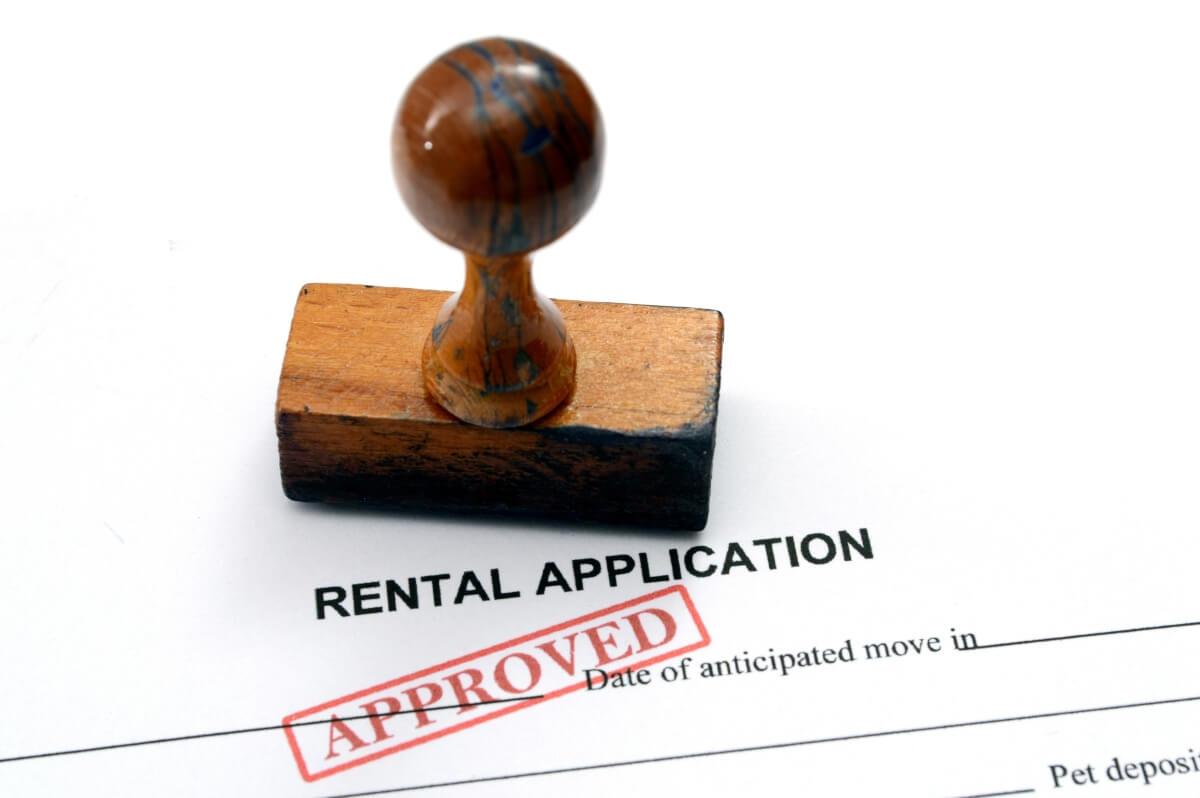
Whether your application has been accepted or denied, your rental journey isn’t over. The ball is now in the landlord’s court as they will likely run credit, criminal, and eviction checks and verify your income. For you, there isn’t much you can do until your application is approved or denied.
How do I check the status of my application?
On Apartments.com, you can check your application status from your dashboard under “Find a Rental.” Once you click on that, a dropdown menu should appear with “applications.” It will give you the status, which can be:
- Pending: If you applied with co-applicants, a "pending" status indicates that your co-applicants are still completing their part of the application.
- Pending (Guarantor Requested): You, or the primary applicant, need to add a guarantor/co-applicant at the request of the property manager.
- Submitted: Your application, along with those of any co-applicants, has been successfully submitted.
- Accepted: The property manager or landlord accepted your application.
- Withdrawn: You withdrew your application.
- Declined: The property manager has denied your application.
What happens after a rental application is approved?
Congratulations! If your rental application was accepted, it’s time to sign your lease agreement. You also need to pay any security deposits, move-in fees, and/or pet deposit/fees mandated in your lease agreement. After that, moving day will be here before you know it!
What happens if my rental application is denied?
Don’t be discouraged if your rental application is denied. Get back on that rental horse and keep looking for your next place. Rental applications can be tricky to navigate, but once you know what to expect and how the process works, you can do it again easily.
FAQs
How do you know if your rental application is approved/denied?
To check the status of your application on Apartments.com, go to the applications dashboard. You can get there by clicking on “Find a Rental” and selecting “Applications.” Once there, you can see the status.
Why was my rental application denied?
There are many reasons why a rental application could be denied. Some of the most common reasons are:
- Insufficient income
- Poor credit report
- Prior evictions
- Damaging references
- Any inaccurate application information
- Another renter has already been approved for the rental in question
Are rental application fees refundable?
Typically, rental application fees are non-refundable, as landlords use that fee to pay for tenant screening. On Apartments.com, you only have to pay once, and then you can apply to up to 10 participating listings for a max of 30 days.
Does applying affect my credit score?
A credit report on Apartments.com will not lower your credit score as it is a soft credit check. Soft credit checks are a way for landlords to get a sense of your financial reliability without negatively impacting your credit score.


